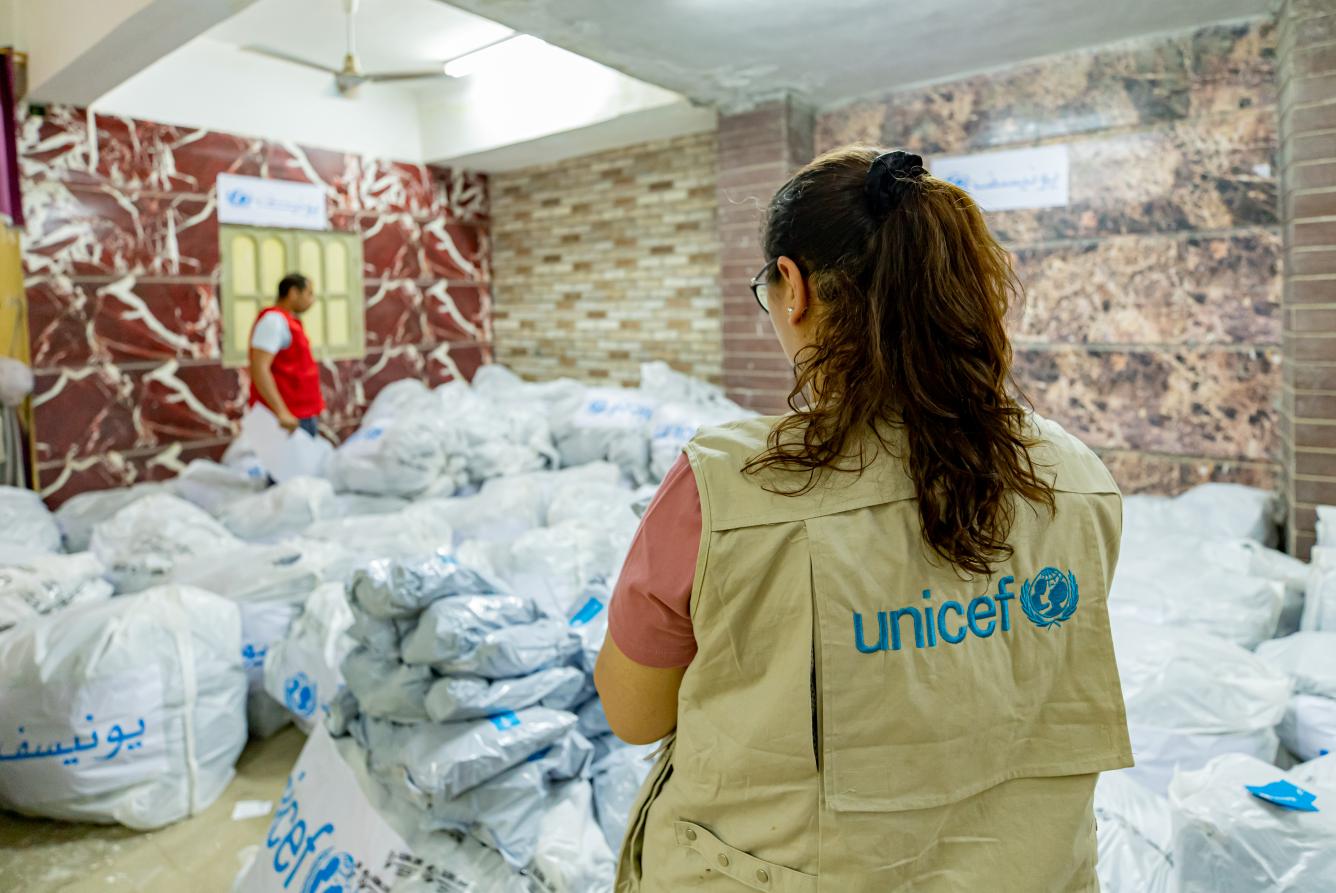Sudan’s Refugee Crisis: Marwa’s journey
By Samreen Alkhair Mohamed Abuidris, Communications Specialist, UNICEF
April 15 started out just like any other Saturday for Marwa.
She prepared breakfast for her mother and her 11-month-old son at their home in Alsafa, close to Khartoum airport. Marwa says the family were looking forward to the return of her husband, who had travelled to Kassala state but was due to return later that day ahead of the long-awaited Eid day celebrations.
None of them could have imagined the devastating chaos that was about to ensue.
“Soon after putting my son to bed, I started hearing very loud noises outside,” Marwa says. Then the electricity in their home went out. “We locked ourselves in the house hoping that this would be over soon.”
But the power didn’t come back on, and the sounds of violent clashes in the city continued.
“We were unable to sleep due to the loud noises. My son kept waking up frightened. He cried all night,” she says. The following day, the electricity remained cut off. “Our phones began losing power.”
By day 3, the power still hadn’t been restored. “I started to panic when I realized that this wasn’t going to be over soon,” Marwa says.
As the hours continued to tick by, the family became increasingly concerned that they might run out of clean water, bread, and other necessities. Despite the danger, Marwa decided she had no choice but to try to buy groceries at a nearby store. It was a terrifying experience.
After leaving the store, she got caught in some crossfire. She sought shelter behind some trees, shielding the bottles of water she had purchased. A stranger offered to shield her with his car until it was safe enough for her to make it home.
“The water bottles fell on the ground many times, but I couldn’t leave them because I had none back at the house,” she says. “My mother is diabetic, so she needed water to take her medicines and I needed some to make formula for my son.”
Shattered dreams
Just like other families, Marwa and her husband had ambitious dreams for a brighter future.
“My husband and I had so many plans before this happened,” Marwa says. “We were working continuously for a year without a break and planning a holiday. I was also studying to take some exams as I awaited a promotion at work.”
But as the fighting intensified in Khartoum, and with her husband unable to make it home, the family realized they had no choice but to flee. Some shrapnel landing near their home was the final straw.
“I heard a very loud bang from our living room. For a moment, I thought a rocket had fallen into the living room and I would find both my son and my mother dead,” Marwa says. “I don’t know how I gathered the courage to look outside. I found my mother holding my son in another room…At that moment, I felt I couldn’t stay in my house any longer.”
Unsure of where to go, what to carry, and when they might be able to return, Marwa grabbed a few belongings including some medication and some clothes, and joined thousands of other families fleeing for safety.
“We had been preparing to move to another apartment and to buy some new furnishings. We had so many dreams, but now everything is over.”

An agonizing journey
Marwa says the journey from Khartoum to Egypt was a stressful, exhausting mix of heat, hunger, fear, sleepless nights and mosquito bites.
It started on an old, dilapidated bus that was halted by armed groups. The next stage of the journey was marked by exorbitant fares, little to no access to sanitation facilities, and unexplained delays during a nine-hour ride that left passengers constantly fearful that they would be robbed.
“While we were waiting for the bus to be fixed the first time, a group of people ran towards us holding guns, sticks and knives and they told us that a group in a nearby village were watching us,” Marwa narrated. “They said they had looted every car that crossed this road.”
Eventually, the family reached the border with Egypt, but even then their ordeal wasn’t over. “When we reached the border, there were more than 70 buses in front of us. We spent the night there. We could only find one bed, for my mother, so my son and I slept in a chair. My brothers slept on the floor.”
Now in a safe place, Marwa says she feels helpless, unable to help those who have remained behind.
“As a person working in the humanitarian field it was very hard for me to see this situation but be unable to help,” she says tearfully. “My husband is still in Kassala and we have no idea how we’ll be reunited. We’re still trying to work that out.”
UNICEF is on the ground in Sudan and in countries bordering the conflict supporting families with water, nutrition, health, child protection and other essential supplies. Read more about our work setting up safe spaces and mental health support for children who’ve fled to Egypt.
